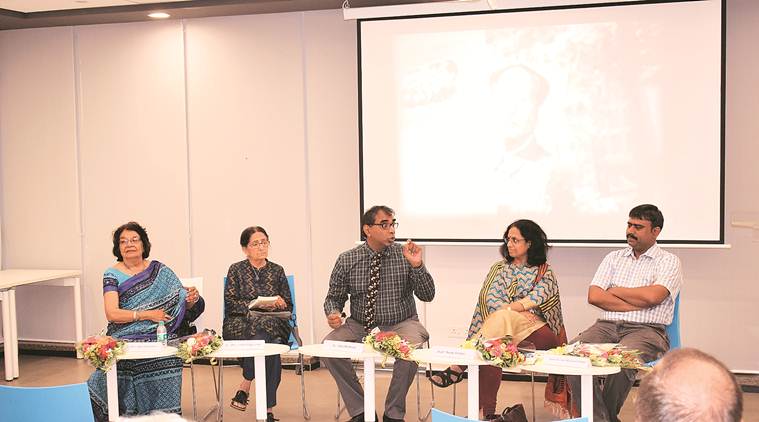 Panelists during discussion on documentary, ‘Mai 1968’ in Pune on Sunday. (Express Photo)
Panelists during discussion on documentary, ‘Mai 1968’ in Pune on Sunday. (Express Photo)
Written by Neha Mehrotra
“In France, everything is existential,” jokes Latika Padgaonkar, a renowned film critic and journalist, who was a panelist for the discussion on the documentary ‘MAI 1968’. On Sunday, Alliance Francaise de Pune, in collaboration with the British Council, organised a screening and discussion on ‘MAI 1968’, on the occasion of the 50th anniversary of the 1968 upheaval in France. A volatile period of civil and political unrest punctuated by student demonstrations and workers’ strikes, the period has entered the French bloodstream as a time of revolution.
“It was a very exciting time to be in France. There was so much happening”, says Aruna Vasudev, another panelist, who was studying at the Sorbonne at the time of the protests. It all began with students of Nanterre University, who were protesting for, among other things, change in the exam system to enter universities, lack of political interference in academic institutions and allowing men’s entry into women’s residences. “There was a running joke about these students at the time: that they had turned the French motto of ‘liberty-equality-fraternity’ into ‘liberty-equality-sexualiy’,” says Vasudev with a laugh.
Though the protest started out small, it soon turned into a broader movement against imperialism, capitalism and prescriptive structures of authority. “I remember all the other girls were protesting in skirts, but I went for the protest in a sari. The hardest part was when the police fired tear gas at us. It was such a nightmare to run in a sari,” says Vasudev.
Eventually, student protesters were joined by workers unions who used the protests as an opportunity to go on strike, demanding lesser working hours and higher wages. At the height of the ferment, the entire economy of France came to a virtual halt. Almost 400 students were wounded and another 400 were arrested during clashes between protesters and authorities.
Professor Parimal Sudhakar, another panelist who was the former head of the JNU students union, compares the May 1968 protests to the 1970’s student movement in India against the Indira Gandhi government. “During the Emergency, student movements led by Jayaprakash Narayan, the ABVP etc. were all inspired by the May 1968 protests in France”, says Sudhakar. “But just like De Gaulle came back to power after the 1968 protests, in India too, the protests had no real political impact. After everything, Indira Gandhi ended up coming back into power”, he says.
“So was it a failed revolution? Was it simply the product of pampered children who had nothing better to do?” asks Shruti Tambe, the fourth panelist and professor of Sociology at Savitribai Phule University. “I don’t think so. It was the harbinger of a socio-cultural revolution of sorts, which brought more tolerance and acceptance for new social and cultural norms,” she says. To quote a popular slogan from that time period, ‘Be Realistic, Demand the Impossible’. And that’s exactly what the students did.